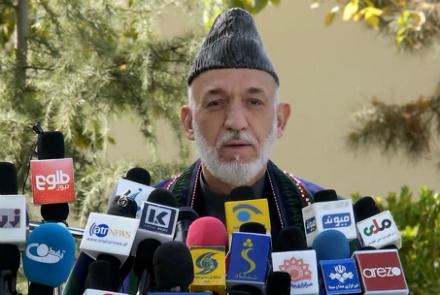A number of MPs from the Wolesi Jirga and some political parties on Thursday criticized former president Hamid Karzai for his call for a Loya Jirga - a Traditional Grand Assembly – and said it was to support individuals’ interests.
Karzai made the call during a press conference in Kabul and said it would be aimed at resolving the crisis in the country.
Some MPs said such Jirgas are against the Constitution and that Afghanistan’s problems should be solved through legal channels.
“According to the Constitution, we have one Jirga and that is the Constitutional Loya Jirga. No traditional Jirga can replace the Constitutional Jirga,” said Ainuddin Bahaduri, a lawyer.
“Taking on to the route of the traditional jirgas will not resolve our problems. As a modern government in a modern community we should take the legal routes. We will increase problems by going through illegal routes,” said Abdul Hafeez Mansour, an MP.
Meanwhile, political affairs analysts said a number of powerful figures want to convene the Loya Jirga to achieve their own goals.
Karzai was opposed to the signing of a bilateral security agreement with Washington before the formation of the National Unity Government in 2014.
“Mr Karzai should not think about holding a traditional Loya Jirga,” said Sebghatullah Mujadidi, former president of Afghanistan.
“We welcome the route which leads us to stability and security in Afghanistan,” said Bashir Ahmad Tahyanj, spokesman for the Islamic National Movement of Afghanistan.
According to Article 110 of the Constitution, the Loya Jirga is the highest manifestation of the will of the people of Afghanistan which consists of members of the National Assembly and of the provincial councils as well as district assemblies. Ministers, Chief Justices and members of the Supreme Court as well as the attorney general shall participate in the Loya Jirga sessions without voting rights.
The Loya Jirga shall convene in the following situations:
1. To decide on issues related to independence, national sovereignty, territorial integrity as well as supreme national interests;
2. Amend provisions of this Constitution;
3. Impeach the President in accordance with the provisions of Article Sixty Nine of the Constitution.

